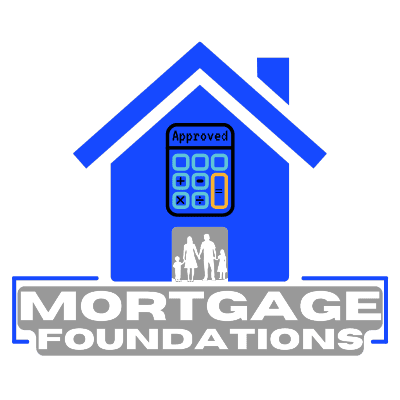Episode # 1 of the Mortgage Foundations Podcast
It seems proper that the first subject in the Mortgage Foundations podcast should be explaining what a mortgage actually is; so, let me break it down for you. Buckle up, because we're about to go on a wild ride through the world of mortgages. First things first. What exactly is a mortgage? Simply put, it's a loan that you take out to buy a property. Whether it's your dream home or a cozy little condo, a mortgage is what makes it possible for most people to become homeowners. Now, let's talk about the nitty-gritty details. When you decide to get a mortgage, you're basically entering into a legal agreement with a lender, usually a bank or a mortgage company. This agreement states that the lender will give you a specific amount of money to buy your property, and in return, you promise to pay back that amount plus interest over a set period of time. The mortgage contract itself is very simple; it is the mortgage product details that require the most attention before signing the contract. Every product and lender is different and have different terms and conditions when it comes to when you can make payments, when you can make extra payments (known as pre-payments), how interest is calculated, when or if you can pay the mortgage out fully, et cetera; the product differences are vast; that is where a mortgage professional can help. We ensure that you are presented with products that meet your wants; as well as your needs for your home financing. Here's the thing – mortgages are not short-term loans. In fact, they typically last anywhere from 15 to 30 years and are broken up into terms of 6 months to 5 or 7 or even 10 years. That means you're committing to making monthly payments for a pretty long time. Each month, a part of your payment goes towards repaying the loan amount (also known as the principal), while another part goes towards paying the interest on the loan. Speaking of interest, this is where things can get a bit tricky. The interest rate on your mortgage is essentially the cost of borrowing money from the lender. It's expressed as a percentage, and it plays a big role in determining your monthly payment. The higher the interest rate, the more you'll end up paying over the life of the loan. Now, let me introduce you to a couple of key terms when it comes to mortgages. The first one is the down payment. This is the initial payment you make towards the purchase price of the property. It's typically a percentage of the total amount, and it can range from as low as 5% to as high as 20% or more. The higher your down payment, the lower your mortgage amount and monthly payments will be. Next up, we have the loan-to-value ratio, or LTV for short. This ratio compares the mortgage amount to the appraised value of the property. For example, if you want to buy a house worth $700,000 and you're getting a $560,000 mortgage, your LTV would be 80%. Lenders use this ratio to assess the risk and insurability of the mortgage, and generally, a lower LTV is seen as less risky. It should be noted that mortgages over 80% LTV (commonly referred to as high-ratio or insured) are also considered as less risky since the lender is insured against default by the borrower. This is why insured mortgages and mortages with a LTV below 65% traditionally feature the best rates. Another important concept is the amortization schedule. This is basically a fancy word for the payment plan of your mortgage. It outlines how much you'll pay each month, how much will go towards the principal and interest, and how much you'll owe over time. Most mortgages follow a monthly amortization schedule, but there are also options for bi-weekly or accelerated schedules. Now, I know all this financial jargon can be overwhelming, but trust me, it's worth understanding. Getting a mortgage is a big deal, and the more informed you are, the better decisions you can make. That's why it's crucial to do your homework and educate yourself before diving into the homebuying process. Understanding the process along with working with a mortgage professional is crucial to making sure you have the right product for you and your family. One thing to note is that not all mortgages are created equal. There are different types of mortgages suited for different needs and situations; these include, but are definitely not limited to, for buyers that are New To Canada, Purchase Plus Improvements programs where a buyer finds the perfect house that may need a bit of work, mortgages for self employed individuals or mortgages for investment properties. The options are expansive amongst the different lenders.. Let me give you a quick rundown of some common rate types available: First, the Fixed-rate mortgage: This is a popular option because it offers stability. With a fixed-rate mortgage, your interest rate stays the same for the entire mortgage term, which means your monthly payment will also remain constant. It's great if you prefer predictability and want to budget your expenses. Next, the Adjustable-rate mortgage (ARM): As the name suggests, the interest rate on an ARM can fluctuate over time. Along with the interest rate fluctuating; the payment does as well; movements in the Bank Of Canada prime rate will normally cause your lenders to adjust their own prime rate and this will result in your payment amount changing on a future payment date; commonly the first one of the next month. The reason that your payment fluctuates in lock step with changes to the prime rate is so that your amortization remains in place for the term of the loan. Finally, the Variable-rate mortgage (VRM) commonly referred to as the static payment variable mortgage. This product is similar to the adjustable-rate mortgage; however, the payments remain the same when there are prime rate changes. With this product, the amortization also fluctuates and during times of decreasing prime rates; your amortization reduces; versus extending in times of increasing prime rates. Taking advantage of prepayment options available on your mortgage can help reduce your amortization or keep it in line when rates are increasing. The term Variable is commonly use interchangeably for Adjustable and Variable rate mortgages; therefore, it is extremely important to know what type your mortgage is; and how rate changes will affect you. Although your mortgage professional cannot know what is going to happen with future rates; they can properly prepare you to know what to expect when changes do happen. Both products have their pros and cons; ensure that the most suitable option is in place for you and your family. That was quite a journey, wasn't it? But trust me, understanding the concept of mortgages is crucial if you're thinking about buying a home. It's a big step, but once you grasp the ins and outs, you'll be better equipped to navigate the mortgage maze and make informed decisions. Happy house hunting!

